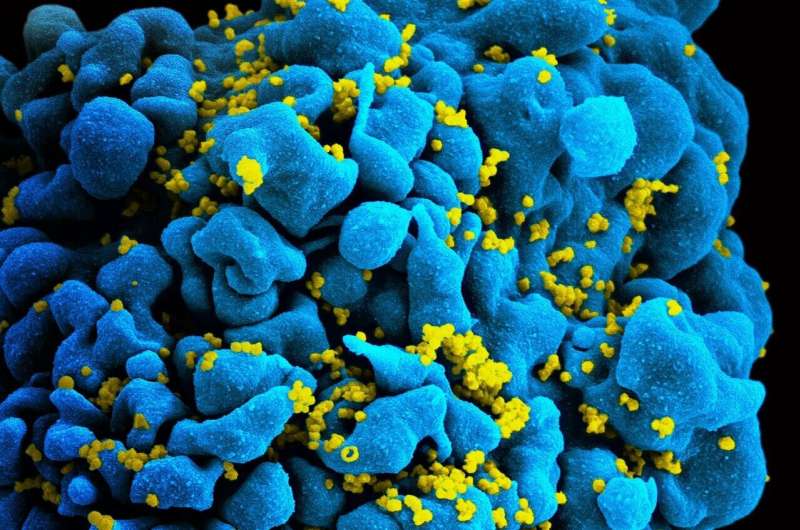Virus characteristics predict HIV treatment efficacy with antibody treatment

Current HIV-1 therapies have been proven to be highly effective in slowing the progression of the virus in the body with only minimal side effects. The daily antiretroviral therapy (ART) uses a combination of HIV-1 medicines. A proportion of patients diagnosed with HIV-1, however, cannot take the ART for many reasons. An alternative option includes antibody-based treatments that are currently being developed, however it is difficult to predict those that would be most appropriate for these more expensive treatments. Now published in the Journal of Virology, research at Boston Medical Center (BMC) has discovered specific virus characteristics that can help predict the efficacy of HIV-1 treatments using antibody-based treatments.
Led by Manish Sagar, MD, an infectious diseases physician at BMC, HIV-1 virus characteristics were identified to predict treatment efficacy with a specific antibody treatment using sequence-based methods. The identified virus characteristics may be used to determine if a patient is a good or poor candidate for specific antibody-based treatments in the future, reducing time and cost involved in treating the virus.
Antibody treatments bind the HIV-1 envelope protein that protects the virus and helps it avoid the immune system response. These envelope proteins also have extensive DNA sequence variation that provides virus information and whether a treatment would be effective or not. It is difficult to predict if an antibody-based therapy will be effective based on knowing the envelope sequence alone, so sequence information is commonly obtained before patients are started on HIV-1 treatments to confirm that their virus will be susceptible to the prescribed therapies.
In the study, HIV-1 envelope sequence motifs were identified that predict treatment efficacy with a certain type of antibody treatment.
"These findings will allow physicians to make better-informed decisions on treatment plans for patients with HIV-1, ultimately treating the virus to slow it down earlier, " says Sagar, also an associate professor of medicine and microbiology at Boston University School of Medicine. "Making this process more efficient will only improve patient care, while reducing the time and money spent on finding the right treatment for these patients."
Antibody-based therapies that require less frequent doping are effective against drug-resistant variants, and may strengthen humoral responses, essential for defense against bacterial pathogens.
More information: Ludy Registre et al, HIV-1 co-receptor usage and variable loop contact impacts V3 loop bnAb susceptibility, Journal of Virology (2019). DOI: 10.1128/JVI.01604-19



















